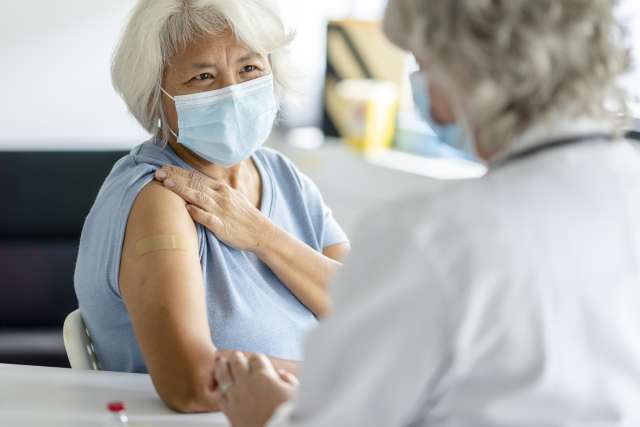Hello, dear readers, and welcome to the monthly letters column. We've had a bumper crop of mail and will have some bonus letters columns in the months to come.
-- We have been hearing from a number of readers asking for an update on the latest guidelines for COVID-19 vaccinations. Considering the many changes that have taken place on this topic over the last few years, we are happy to oblige.
As of April 2023, the Centers for Disease Control and Prevention recommends that everyone age 6 and older receive a dose of the updated COVID-19 vaccine, which is often referred to as the “bivalent” vaccine. The single shot of the updated vaccine is recommended regardless of whether someone has previously completed the primary two-dose series.
A second dose of the bivalent vaccine, administered no sooner than six months after the initial dose, is available to adults 65 and older, and to people who are immunocompromised.
An important change that should be noted: The original two-dose series of the monovalent vaccine is no longer recommended for people in the United States. A single bivalent shot is now the recommended protection.
-- After reading a recent column about gastric ulcers, a reader in Los Angeles had additional questions. "I have an ulcer, and the medication causes stomach cramps and bloating. I read that drinking cabbage juice can help," she wrote. "Is there any scientific basis to support this? Also, does exercise, like yoga, hinder the healing process?"
Older research, which dates to the 1950s, suggests that cabbage juice can be beneficial to an ulcer. However, newer research, while occasionally promising, has not found definitive evidence of this. We do know that cruciferous vegetables, such as cabbage, can contribute to bloating. If you decide to give cabbage juice a try, ease it into your diet gradually.
If you have been prescribed medications to treat your ulcer, such as proton pump inhibitors to decrease stomach acid or antibiotics to address infection with H. pylori, be sure to continue those. And exercise is fine. In fact, stress plays a role in some ulcers, and exercise, including yoga, can help.
-- A reader taking medication to manage prostate issues asked about the side effects he is experiencing. "I have been taking one capsule per day beginning in December, and started having problems with a stuffy, runny and occasionally bleeding nose," he wrote. "It stopped when I quit the medication, but then the prostate problems came back. What can I do?"
The medication you are taking is used when an enlarged prostate gland impedes urine flow. It works by relaxing the muscles around the bladder and the gland. The nasal symptoms that you experienced are among the potential side effects of the medication. We recommend letting your doctor know that the side effects were severe. They may be able to lower your dosage, which can be helpful, or may offer you a different medication.
Thank you, as always, for your letters and comments. We love hearing from you and enjoy this ongoing conversation.
(Send your questions to [email protected], or write: Ask the Doctors, c/o UCLA Health Sciences Media Relations, 10960 Wilshire Blvd., Suite 1955, Los Angeles, CA, 90024. Owing to the volume of mail, personal replies cannot be provided.)





